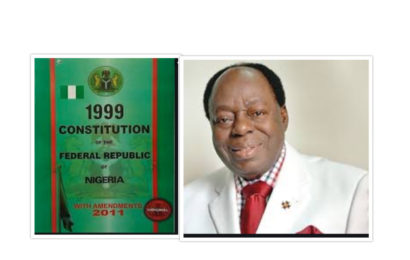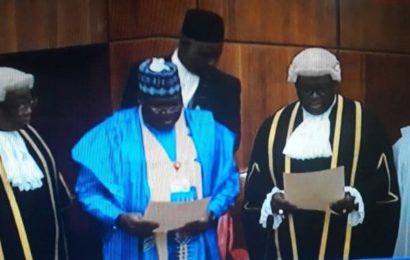 Bloomberg, a financial software, data, and media company, owned by Michael Bloomberg, the sixth richest man in the world, says President Muhammadu Buhari’s rigid leadership style, is making the Nigeria’s economic problems harder to solve.
Bloomberg, a financial software, data, and media company, owned by Michael Bloomberg, the sixth richest man in the world, says President Muhammadu Buhari’s rigid leadership style, is making the Nigeria’s economic problems harder to solve.
An editorial by the revered media and data outfit said: “Africa and the world cannot afford a failing economy in the continent’s most populous nation.
“Yet that is exactly what Nigeria might be getting: Its economy is on track to shrink by 1.7 percent this year, the official unemployment rate has more than doubled over the last two years, and inflation is at an 11-year high.
“One concrete step President Muhammadu Buhari could take to address the crisis would be to eliminate the country’s disastrous foreign exchange controls. Instead, Buhari has made no secret of his desire to defend Nigeria’s currency.
“And the central bank has mostly gone along. Despite allowing the devaluation of the naira in June, it is continuing to manipulate the exchange rate — discouraging foreign investors, creating a crippling shortage of dollars for businesses that need to import, and feeding a currency black market. To keep down the street price of vanishing dollars, Buhari’s government has arrested informal money-changers. More capital controls are in the works.”
Bloomberg said “dismantling Nigeria’s foreign exchange controls will doubtless cause at least a short-term rise in inflation”.
The company’s editorial board however said dismantling the forex controls “will not only draw foreign investment and make the economy more productive and competitive, but also cut off a conduit for corruption”.
It advised that when the forex controls are removed, the government could “cushion the blow for Nigeria’s poor through targeted cash payments”, as it was done for farmers under former president Goodluck Jonathan.
Bloomberg categorically state that “Buhari faced ugly circumstances when he took office in May 2015″.
“The plunge in oil prices had left the economy reeling and government coffers bare, and attacks by Boko Haram were ravaging the country. Yet while some progress has been made fighting both terrorism and corruption, Buhari’s rigid leadership style has made the country’s economic problems harder to solve.”
The board concluded that Buhari’s election and pledges of good governance rightfully raised expectations across Africa.
“To fulfill those hopes, however, he will have to demonstrate more flexibility,” it said.








